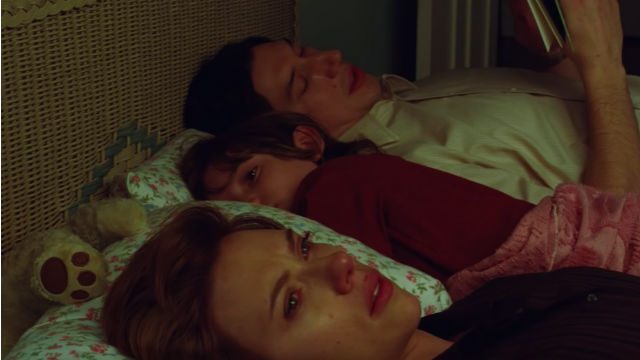SUMMARY
This is AI generated summarization, which may have errors. For context, always refer to the full article.

Marriage Story.
No lyrical descriptions. No names and identities. No cloying ornaments.
The title is as Spartan as it can get. It makes it seem like the film is run-of-the-mill, that it is about an ordinary couple going through the ordinary course of an ordinary marital union.
Far from ordinary
Noah Baumbach’s Marriage Story however is far from ordinary.
Its characters are far from the everyday man and woman who fall in love and succumb to the motions of typical domestic life. He (Adam Driver) is a theater director who is slowly but surely gaining some renown in New York City. She (Scarlett Johannson) is a Hollywood actress whose last and most prominent role is as a dauntless babe in an R-rated comedy. Their love story is unique, with her giving up Hollywood to help him and his theater troupe gain some traction in faraway East Coast. Their eventual discord is also uncommon, with her wanting to reestablish her stalled career as he is reaching the peak of his.
In a way, the uniqueness of this marriage story gives a semblance of comfort.
Baumbach’s film is sober but harrowing.
Its intricate account of a seemingly perfect couple’s ideal relationship disintegrating slowly at first because of diverging ambitions – and much quicker later when vulture-like lawyers find their way into the center of the squabble, blends effectively prosaic humor and intimate tragedy that result in intense and immediate emotional heft. There is some voyeuristic pleasure to be had in watching strangers whose lives are far too privileged or esoteric to be disconcertingly similar with the rest of the world. The specificity of the experience offers a consoling distance to the melancholic narrative.

Cutthroat compromises and procedures
Despite that distance that Baumbach’s distinct narrative and characters afford his audience, Marriage Story remains a searing indictment of the social labels that reduce human relationships to cutthroat compromises and soulless procedures.
It is this dehumanizing facet of the story that makes it exhaustingly ravaging. Baumbach opens the film with slices of perfection, of him honoring his wife and her honoring her husband over images of domestic bliss. The eventual break-up is, in fact, tolerable. However, when manipulative divorce lawyers (Laura Dern and Ray Liotta) turn the love story that has gone sour into blueprints for a scathing courtroom battle, hopes and passions are ultimately replaced with incurable disdain, turning what was a relationship founded on mutual love and respect into a soulless exchange of favors, reputations and costs.
Baumbach, without abandoning the humanity of his hapless subjects caught in the middle of heartless legalities, steers his narrative from how the two ultimately failed each other to how society’s paper structures ultimately betrayed human bonds.
In that scene which serves the purpose of allowing both Driver and Johansson to fervidly explode with all the repressed angst and bitterness, the film pinpoints the very purpose of marriage as the core of the conflict. In essence, Marriage Story points its fingers on the restrictive obligations of a construct guided by flawed societal expectations, forcing man and woman to act and behave within social and geographical boundaries, which only result in disagreements and separations.
The title becomes apt. It is not ordinary. It is direct to the point.

Tremendous achievement
Marriage Story is a tremendous achievement.
It balances the requirements of a stirring relationship drama and its bold statements on the corrupting system that preys on the misfortunes of failed lovers. It is brave and poignant. It is undeniably precious. – Rappler.com

Francis Joseph Cruz litigates for a living and writes about cinema for fun. The first Filipino movie he saw in the theaters was Carlo J. Caparas’ Tirad Pass.
Since then, he’s been on a mission to find better memories with Philippine cinema.
Add a comment
How does this make you feel?
There are no comments yet. Add your comment to start the conversation.